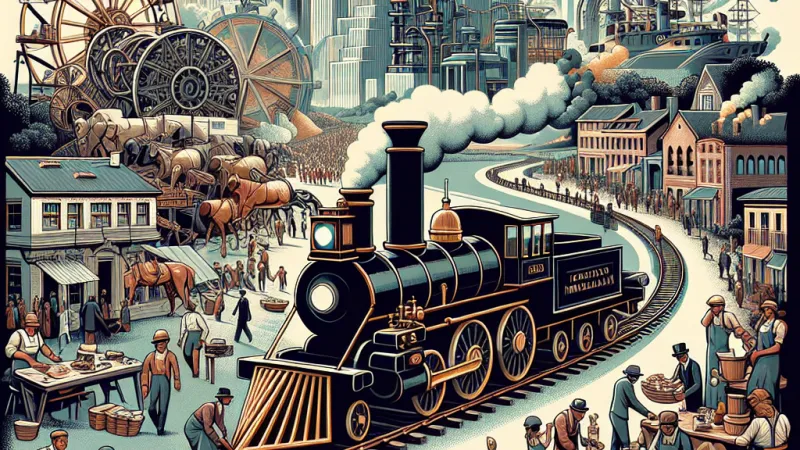Saggio in inglese sull'imperialismo
Questo lavoro è stato verificato dal nostro insegnante: 2.07.2025 alle 20:48
Tipologia dell'esercizio: Saggio
Aggiunto: 19.06.2025 alle 1:16

Riepilogo:
L'imperialismo ha plasmato la storia moderna, causando sia progresso tecnologico che sfruttamento. Comprendere il suo impatto aiuta a affrontare le disuguaglianze attuali.
Imperialism, defined as the policy of extending a country's power and influence through colonization, use of military force, or other means, has been a dominant force in global history, particularly from the 16th to the mid-20th century. Its roots can be traced back to European exploration of the world, driven by the desire for new trade routes and resources. This essay aims to provide a factual analysis of imperialism’s historical development and its impact on both the colonizing and the colonized nations.
The Age of Exploration, beginning in the late 15th century, was a precursor to imperialism. Countries like Spain and Portugal embarked on voyages across the Atlantic, leading to the discovery of the Americas and the establishment of colonies. The Treaty of Tordesillas in 1494, which divided the newly discovered lands outside Europe between these two Iberian powers, was one of the earliest acts of imperialistic expansion. Other European powers, including Britain, France, and the Netherlands, soon followed, setting the stage for the global imperialistic endeavors that would dominate the coming centuries.
During the 19th century, imperialism reached its zenith, often referred to as the "Scramble for Africa". The Berlin Conference of 1884-1885, attended by major European powers, formalized the division and colonization of Africa. By the early 20th century, nearly the entire continent was under European control, with only Liberia and Ethiopia retaining their sovereignty. This period was characterized by aggressive expansion and the belief in the superiority of Western civilization, justifying colonial rule as a civilizing mission.
The motivations behind imperialism were varied, ranging from economic to political and cultural factors. Economically, imperialism was driven by the need for new markets and raw materials to fuel the Industrial Revolution. Colonies provided both resources and markets for manufactured goods, which was crucial for the economic growth of industrialized nations. Politically, control over territories was seen as a means to increase national prestige and power. Culturally, imperialism was justified through ideologies like the “White Man’s Burden”, which posited that it was the duty of European nations to civilize the supposedly inferior races.
The impact of imperialism on the colonized regions was profound and often devastating. In Africa, it led to the exploitation of natural and human resources and the destruction of traditional societies. The imposition of foreign rule disrupted local governance structures and economies. In India, British rule had both positive and negative effects; while it introduced railways and education systems, it also led to economic inequality and famines. The cultural imperialism accompanying colonization often resulted in the erosion of indigenous cultures, languages, and traditions.
Resistance to imperialism was widespread and took various forms, from armed revolts to political movements. Notable resistance leaders include Mahatma Gandhi in India, who advocated for nonviolent resistance against British rule, and Nelson Mandela in South Africa, who fought against apartheid—a system rooted in the imperial legacy. The struggle for independence gained momentum after World War II, as war-weary European nations found it increasingly difficult to maintain their colonies.
The process of decolonization in the mid-20th century marked the end of formal imperialism, but its legacies continue to influence the modern world. Postcolonial states often face challenges inherited from their colonial pasts, such as arbitrary borders, ethnic tensions, and economic dependency. The concept of neocolonialism has emerged to describe the continued economic and cultural influence of former colonial powers over their former colonies.
In conclusion, imperialism was a significant force in shaping the modern world, with complex causes and far-reaching consequences. While it facilitated the spread of technology and ideas, it also led to the exploitation and subjugation of millions. Understanding the history of imperialism is crucial for comprehending contemporary global relations and the persistent inequalities that stem from this historical period. This awareness can guide efforts to address the injustices of the past and build a more equitable future.
Valutazione dell'insegnante:
Questo lavoro è stato verificato dal nostro insegnante: 2.07.2025 alle 20:48
Sull'insegnante: Insegnante - Francesca B.
Da 12 anni lavoro nella scuola secondaria di secondo grado (liceo), aiutando le studentesse e gli studenti a comprendere i testi e a trovare una voce chiara nella scrittura. Preparo alla maturità (Esame di Stato) e, con chi è più giovane, sostengo la comprensione e la produzione scritta in vista dell’esame di terza media. In classe c’è calma e attenzione, con spazio per domande e confronto, e strategie pratiche che funzionano davvero in sede d’esame.
Voto: 9 Commento: Un saggio ben strutturato e informativo che analizza in modo approfondito l'imperialismo e il suo impatto storico.
Komentarze naszych użytkowników:
Vota:
Accedi per poter valutare il lavoro.
Accedi